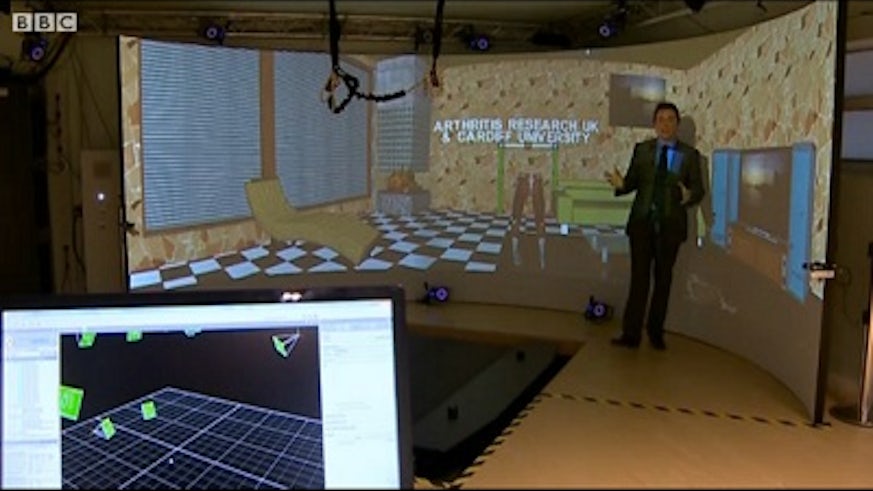Virtual rehabilitation suite for arthritis patients
10 October 2013

A new research project led by the University's Arthritis Research UK Biomechanics and Bioengineering Centre is using technology normally associated with Hollywood blockbusters to help tackle arthritis. Funded by Arthritis Research UK, the project has established a virtual rehabilitation suite – the first of its kind in the UK – with equipment used to create special effects in films.
The £500,000 investment includes cameras, a cinema screen and computers to monitor joint movement which could lead to practical benefits for people with painful limb disorders.
More than 10 million UK adults seek help for arthritis each year – the condition can lead to pain, disability, joint damage and reduced quality of life. Current treatments include drugs, physical therapies and surgery.
The new rehabilitation suite will enable experts and clinicians to examine in great detail the limb movements of arthritis sufferers. Dr Paulien Roos, a project leader at the Arthritis Research UK Biomechanics and Bioengineering Centre, said:
"It's an excellent tool that really helps to move our research forward. Normally it would take us days or even years to calculate the measurements this tool allows us to gather.
"We can now get that information immediately so we can give real time feedback to patients. We can tell patients how they can improve their movement and hopefully alleviate future joint problems."
The suite uses an innovative Gait Real-time Analysis Interactive Laboratory system (GRAIL) and is the first of its kind to be installed in the UK. There are currently only two in the UK. The system consists of a treadmill, motion capture cameras, a screen for projection of a virtual scene such as a park, city or home environment and multiple computers.
Knee pain is one of the commonest musculoskeletal symptoms for people in the UK and can have a number of different causes including osteoarthritis.
Explore the new rehabilitation suite with Steffan Messenger from the BBC